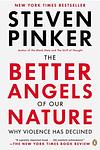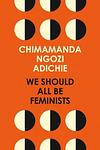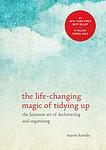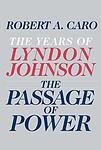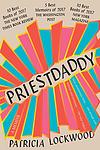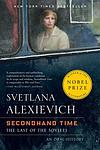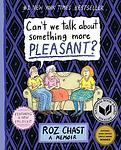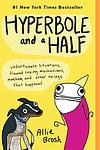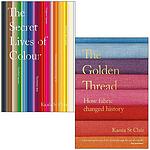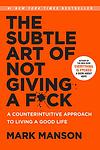The Greatest "Nonfiction" Books Since 2010
Click to learn how this list is calculated.
This list represents a comprehensive and trusted collection of the greatest books. Developed through a specialized algorithm, it brings together 288 'best of' book lists to form a definitive guide to the world's most acclaimed books. For those interested in how these books are chosen, additional details can be found on the rankings page.
Genres
Countries
Date Range
Reading Statistics
Click the button below to see how many of these books you've read!
Download
If you're interested in downloading this list as a CSV file for use in a spreadsheet application, you can easily do so by clicking the button below. Please note that to ensure a manageable file size and faster download, the CSV will include details for only the first 500 books.
Download-
26. The Better Angels Of Our Nature by Steven Pinker
This book presents a comprehensive analysis of violence throughout human history, arguing that, contrary to popular belief, we are living in the most peaceful era ever. The author uses a wealth of data to demonstrate how the rates of violence, from homicide to war, have decreased over centuries due to various social, cultural, and political developments. By examining the forces he believes have led to this decline, such as the spread of government, trade, and the influence of enlightenment thinking, the book offers an optimistic view of humanity's ability to reduce violence through reason and empathy, suggesting that our better angels are indeed winning the battle against our inner demons.
-
27. We Should All Be Feminists by Chimamanda Ngozi Adichie
The book explores the importance of feminism in today's society and argues that gender equality is not just a women's issue, but a concern for everyone. Drawing from personal experiences and anecdotes, the author highlights the various ways in which gender inequality manifests itself and offers insightful perspectives on how we can work towards a more inclusive and equitable world for all.
-
28. Atomic Habits by James Clear
This book explores the power of small habits and incremental changes in order to achieve significant personal and professional growth. The author delves into the science behind habit formation and provides practical strategies to break bad habits and build good ones. Through insightful anecdotes and actionable advice, "Atomic Habits" offers a roadmap for individuals to transform their lives by harnessing the compounding effect of small habits.
-
29. The Life Changing Magic Of Tidying Up by Marie Kondo
"The Life Changing Magic of Tidying Up" is a practical guide that offers a fresh perspective on decluttering and organizing one's home. The author introduces the KonMari Method, a systematic approach to tidying that encourages individuals to keep only items that truly spark joy in their lives. Through insightful anecdotes and step-by-step instructions, the book provides valuable insights on how tidying can lead to a transformative and joyful lifestyle.
-
30. The Power Of Habit by Charles Duhigg
This book delves into the science of habit formation, illustrating how habits influence our lives and how they can be transformed to foster success. It explores the neurological patterns that govern habits, the impact of societal routines on individual behavior, and the ways in which understanding these patterns can help us improve our health, increase productivity, and change our businesses and communities. By dissecting the components of the habit loop—cue, routine, and reward—the book provides insights into how habits work and offers practical advice on how to change them, drawing on a wealth of research and real-world examples.
-
31. Just Mercy by Bryan Stevenson
This book is a profound work of non-fiction that focuses on the author's experiences as a young lawyer fighting for the rights of those wrongfully convicted or excessively punished. The narrative primarily revolves around the case of a black man sentenced to death for a crime he didn't commit. The author not only exposes the inherent racial bias and systemic flaws in the American criminal justice system, but also provides a compelling argument for compassion in the pursuit of justice.
-
32. Capital in the Twenty-First Century by Thomas Piketty
This book provides a comprehensive analysis of the dynamics of capital accumulation and distribution over the last few centuries. The author argues that the rate of capital return in developed countries is persistently greater than the rate of economic growth, leading to high levels of wealth inequality. The book further suggests that the level of income inequality is not primarily a result of differences in individual labor income but rather the result of differences in capital ownership and the income derived from it. The author proposes a global tax on wealth to prevent soaring inequality.
-
33. H Is For Hawk by Helen MacDonald
"H Is For Hawk" is a memoir by Helen MacDonald about her experiences training a goshawk named Mabel after the sudden death of her father. MacDonald reflects on her grief and the challenges of training a wild bird while also delving into the history of falconry and the life of T.H. White, the author of "The Once and Future King" who also trained a goshawk. The book explores themes of loss, nature, and the complexities of human-animal relationships.
-
34. The Passage Of Power: The Years Of Lyndon Johnson by Robert Caro
"The Passage of Power: The Years of Lyndon Johnson" by Robert Caro is the fourth volume in his acclaimed biography of the 36th President of the United States. This book covers the years from 1958 to 1964, including Johnson's ascent to the presidency following the assassination of John F. Kennedy. Caro explores Johnson's struggles to pass civil rights legislation, his relationship with Kennedy's family, and his efforts to establish his own presidential legacy. The book also delves into Johnson's personal life, including his marriage to Lady Bird Johnson and his health issues. Overall, "The Passage of Power" provides a comprehensive and insightful look into one of the most complex and consequential figures in American political history.
-
35. Homo Deus by Yuval Noah Harari
This book explores the future of humankind, building upon the foundation laid by its exploration of our past. It delves into the potential paths humanity might take as technological advancements and artificial intelligence begin to challenge the very essence of what it means to be human. The narrative posits that as we conquer famine, war, and plague, our focus shifts towards achieving happiness, immortality, and divinity, raising profound questions about our future roles and values in a world where machines and algorithms might outperform us in thinking, making decisions, and understanding the universe. Through a blend of philosophy, history, and future-gazing, the book invites readers to consider the implications of such a future, both exhilarating and daunting.
-
36. Five Days at Memorial: Life and Death in a Storm-Ravaged Hospital by Sheri Fink
The book provides an in-depth investigation into the crisis at a New Orleans hospital in the wake of Hurricane Katrina. It delves into the harrowing five days where staff, patients, and their families were trapped in the hospital without power or a functioning evacuation plan. The narrative explores the ethical dilemmas faced by the medical staff, including alleged euthanasia of critically ill patients, and the subsequent legal battles, raising profound questions about end-of-life care and disaster management.
-
37. How To Change Your Mind: What The New Science Of Psychedelics Teaches Us About Consciousness, Dying, Addiction, Depression, And Transcendence by Michael Pollan
In "How To Change Your Mind," Michael Pollan explores the history, science, and potential therapeutic uses of psychedelic drugs such as LSD and psilocybin. He interviews researchers, therapists, and individuals who have undergone psychedelic experiences, and shares his own personal experiences with these substances. Pollan argues that psychedelics have the potential to unlock new understandings of consciousness, spirituality, and mental health, and could offer new treatments for addiction, depression, and end-of-life anxiety. He also explores the cultural and political factors that led to the demonization and criminalization of these substances, and advocates for a reevaluation of their legal status in order to facilitate further research and exploration.
-
38. Tell Me How It Ends: An Essay in 40 Questions by Valeria Luiselli
This book is a powerful exploration of the critical issue of child immigration, focusing on the experiences of Central American children who arrive in the United States without their parents. The narrative is structured around 40 questions that the author, as a court interpreter, must ask the children to help determine their fate. The book provides a deeply personal and moving account of the human stories behind the ongoing debate over immigration and asylum laws.
-
39. Priestdaddy: A Memoir by Patricia Lockwood
This memoir follows the unique life of a woman who grew up in an unusual religious family. After a financial crisis forces her and her husband to move back in with her parents, she reflects on her upbringing in a household where her father, a Catholic priest, held an eccentric and often contradictory sway over the family. The book explores themes of faith, family dynamics, and the struggle to find one's identity amidst the chaos of an unconventional childhood.
-
40. Dark Money: The Hidden History Of The Billionaires Behind The Rise Of The Radical Righ by Jane Mayer
"Dark Money" by Jane Mayer is an investigative book that delves into the secretive world of political funding by wealthy individuals and corporations. Mayer exposes the hidden history of the billionaires behind the rise of the radical right, including the Koch brothers and their network of donors. She reveals how these donors have used their enormous wealth to shape American politics and policy, pushing their own interests and agendas while undermining democracy. Mayer's book is a sobering reminder of the dangers of unchecked political influence by the ultra-wealthy.
-
41. Secondhand Time: The Last of the Soviets by Svetlana Alexievich
"Secondhand Time: The Last of the Soviets" is a compilation of personal narratives from individuals who lived through the transformation of the Soviet Union to modern Russia. The book provides a vivid and emotional portrayal of the experiences of ordinary people during this period of significant societal and political change. The author uses these narratives to explore themes such as the impact of political ideology on individual lives, the nature of memory and history, and the enduring effects of trauma and loss.
-
42. Can’t We Talk About Something More Pleasant? by Roz Chast
"Can't We Talk About Something More Pleasant?" is a graphic memoir by Roz Chast that explores her relationship with her aging parents as they approach the end of their lives. Chast uses her signature humor and illustrations to navigate the difficult topics of illness, death, and family dynamics. The book captures the universal experience of caring for aging parents and the emotional toll it can take on adult children.
-
43. Hyperbole And A Half by Allie Brosh
"Hyperbole And A Half" is a humorous and deeply personal memoir that combines witty anecdotes and colorful illustrations to explore the author's experiences with mental health, childhood, and adulthood. Through a series of hilarious and relatable stories, the book offers a unique perspective on life's challenges and the power of humor in navigating them.
-
44. The Bully Pulpit: Theodore Roosevelt, William Howard Taft, And The Golden Age Of Journalism by Doris Kearns Goodwin
This historical work delves into the vibrant era of early 20th-century America, exploring the close friendship and eventual political rivalry between two presidents, Theodore Roosevelt and William Howard Taft. It also highlights the crucial role of muckraking journalists who, with the support of Roosevelt's bully pulpit, exposed corruption and galvanized public opinion. The narrative weaves together the personal and political dynamics that shaped the Progressive Era, showcasing how these leaders and the press collectively brought about significant reforms and forever transformed the American political landscape.
-
45. The Invention Of Nature: Alexander Von Humboldt’s New World by Andrea Wulf
"The Invention of Nature" is a biographical account of Alexander von Humboldt, a 19th-century explorer, scientist, and naturalist who revolutionized the way we understand the natural world. Andrea Wulf chronicles Humboldt's travels across South America, his encounters with indigenous peoples, and his groundbreaking scientific discoveries that challenged prevailing notions of the natural world. Humboldt's ideas about interconnectedness and the unity of nature were ahead of their time and continue to influence environmentalism and conservation today. Wulf's book is a masterful exploration of one of history's most fascinating and influential figures.
-
46. The Secret Lives Of Colour by Kassia St. Clair
This book delves into the rich history and cultural significance of colors, exploring their origins, science, and social implications. It offers a vibrant journey through a rainbow of hues, from the rarest pigments to the most ubiquitous shades, revealing fascinating stories behind each color. The narrative uncovers how colors have been produced and used in art, fashion, politics, and warfare, shaping human civilization in profound ways. Through anecdotes and meticulous research, the book presents an eye-opening perspective on the palette of our world, illustrating how deeply colors influence our experiences and our very understanding of the world around us.
-
47. The Subtle Art Of Not Giving A F*Ck by Mark Manson
"The Subtle Art of Not Giving a F*ck" is a self-help book that challenges conventional wisdom and encourages readers to embrace a more honest and practical approach to life. With a blend of humor and brutal honesty, the author explores the importance of choosing our values wisely, accepting our flaws, and focusing our energy on what truly matters. Through personal anecdotes and thought-provoking insights, the book offers a refreshing perspective on finding happiness and fulfillment in a world that often prioritizes superficial success and constant positivity.
-
48. Why Be Happy When You Could Be Normal? by Jeanette Winterson
This book is a deeply personal memoir about a woman's quest for identity and happiness amidst a turbulent childhood. Raised by an abusive and religiously fanatic adoptive mother in a small, industrial town in Northern England, the author struggles with her sexuality, eventually being thrown out of her home for having a relationship with another woman. She later embarks on a journey to find her biological mother, all while wrestling with her own mental health issues and trying to make sense of her place in the world. The narrative is a raw exploration of love, loss, and the power of literature as a means of escape and self-discovery.
-
49. The Yellow House by Sarah M. Broom
"The Yellow House" is a memoir that tells the story of a hundred years of the author's family and their relationship to home in a neglected area of one of America's most mythologized cities, New Orleans. The narrative follows the author's journey from growing up in the titular house in New Orleans East, a largely ignored part of the city, to her pursuit of education and a career as a journalist, and her eventual return to New Orleans after Hurricane Katrina. The book explores themes of race, poverty, and inequity in America, while also being a deeply personal exploration of family, identity, and place.
-
50. We Don’t Know Ourselves by Fintan O'Toole
"We Don't Know Ourselves" by Fintan O'Toole is a collection of essays that explores the current state of Ireland and its people. O'Toole argues that Ireland's sense of identity has been shaped by its history of colonization and the struggle for independence, but that this identity is now being challenged by globalization and the changing social and economic landscape. He examines issues such as immigration, the Catholic Church's declining influence, and the rise of nationalism, and ultimately argues that Ireland needs to embrace a new sense of identity that is inclusive and forward-thinking.
Reading Statistics
Click the button below to see how many of these books you've read!
Download
If you're interested in downloading this list as a CSV file for use in a spreadsheet application, you can easily do so by clicking the button below. Please note that to ensure a manageable file size and faster download, the CSV will include details for only the first 500 books.
Download